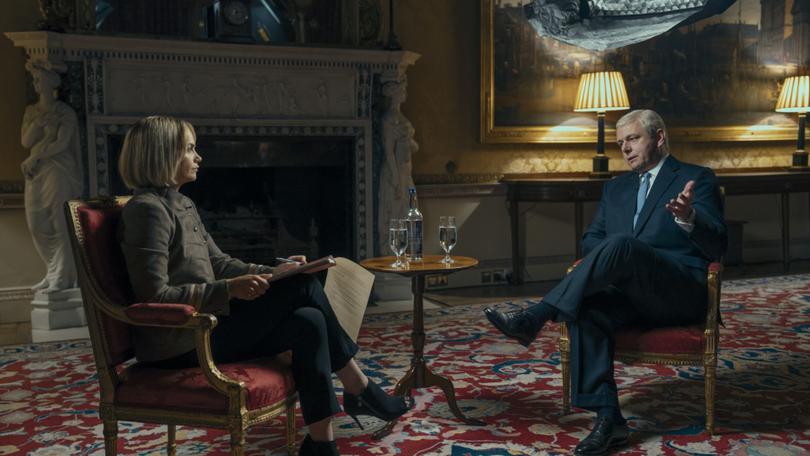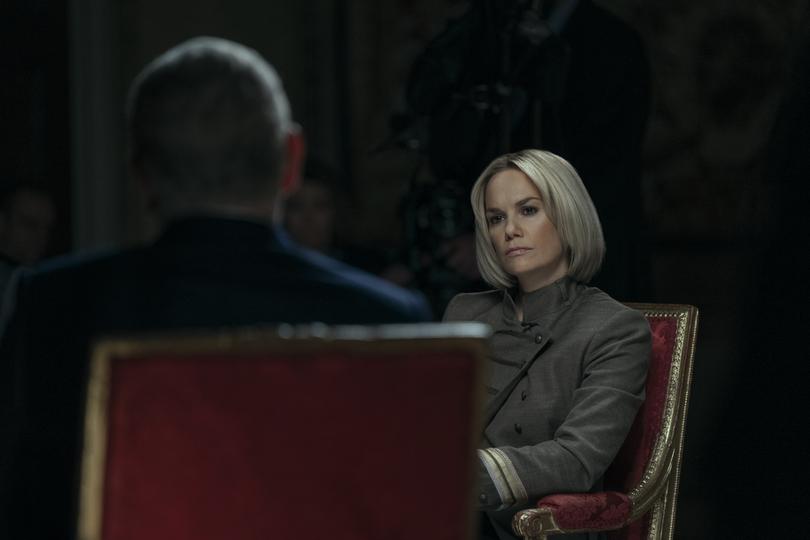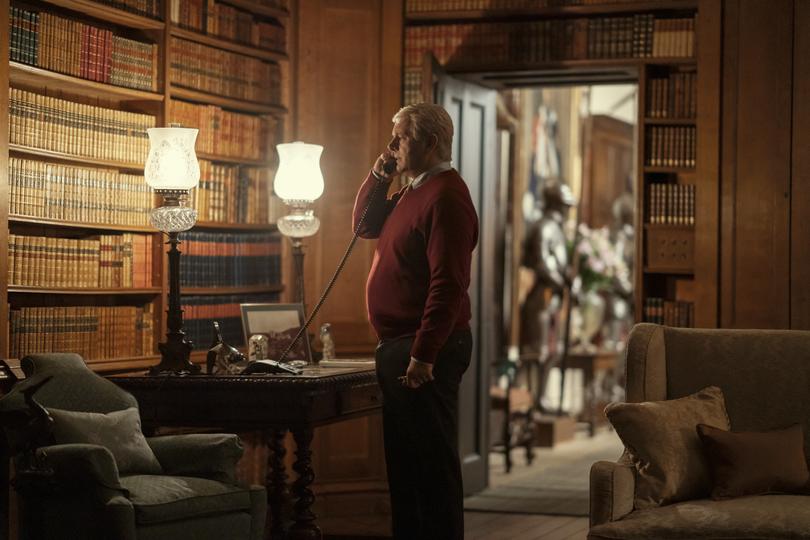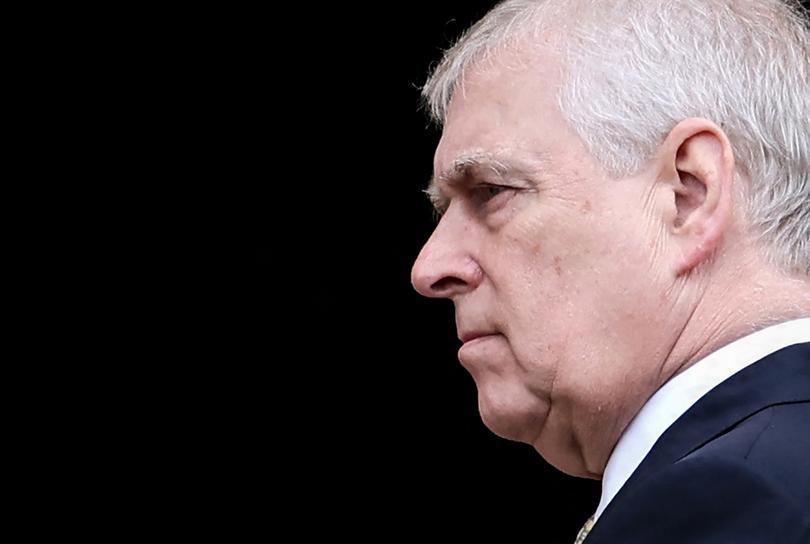A Very Royal Scandal is a distraction from the real Prince Andrew question
The release of a second drama about the Prince Andrew scandal highlights the real question is why the royals as an institution came out relatively unscathed.

How many dramatisations of Prince Andrew’s car crash BBC interview do you need in six months?
Apparently, the answer is two.
Five months after the Gillian Anderson and Rufus Sewell movie Scoop, here comes another version. This time, it’s a three-part miniseries called A Very Royal Scandal and it stars Ruth Wilson and Michael Sheen.
Sign up to The Nightly's newsletters.
Get the first look at the digital newspaper, curated daily stories and breaking headlines delivered to your inbox.
By continuing you agree to our Terms and Privacy Policy.The reason there are two competing projects is because there were two competing books that detailed the behind-the-scenes drama of how Newsnight landed that now infamous tete-a-tete, one from producer Sam McAlister, which formed the basis of Scoop, and the other from host Emily Maitlis, on which A Very Royal Scandal is based.
The perspectives are a bit different. In Scoop, the audience went home with McAlister and her personal battles to be taken seriously by a team that looked down on her “tabloid” instincts. In A Very Royal Scandal, Maitlis is the primary driver, and the emotional underpinning is the sexism and double standards she faces as a woman in a high-profile position.

By virtue of the fact that A Very Royal Scandal has three hour-long episodes to get into it, it feels a little more complete than Scoop.
The series is a spiritual cousin to its predecessors, A Very English Scandal (Hugh Grant and Ben Whishaw) and A Very British Scandal (Claire Foy and Paul Bettany), which told the stories of the Thorpe affair and the Argyll divorce, respectively.
The not-quite-a-trilogy is supposed to examine the social and power structures of the eras in which these scandals occurred, a re-litigation of the homophobia (A Very English Scandal) and misogyny (A Very British Scandal) that led to the downfall of these publicly shamed figures.
There was also a distance to these historical events, a more clear-eyed view of the metamorphoses in British society that means we can now recognise the invisible forces behind them — as well as what hasn’t changed.
Following up those two shows with the Prince Andrew Newsnight interview is a curious choice because, if we’re honest, there have been no tectonic shifts. There have barely been minor ones.
Part of that is that it’s only been about five minutes since that interview, but mostly because the reputation of the British monarchy stands strong. Prince Andrew may have been personally dented but the institution is doing just fine.

That interview remains more remembered for the bizarre claims Prince Andrew made (he doesn’t sweat, he was at a Pizza Express in Woking) while denying he sexually assaulted the then-underaged Virginia Giuffre in 2001.
After the interview aired, Prince Andrew was stripped of his royal duties, patronages and military titles. He also settled a civil case brought by Giuffre in 2022, reportedly in the eight figures, with the late Queen contributing a substantial amount.
His brother, King Charles, is said to be on the verge of evicting his wayward sibling from the 30-room Royal Lodge residence where Prince Andrew lives with ex-wife Sarah Ferguson.
So, yes, Prince Andrew, eighth in the line of succession, is not having a good time.
But both A Very Royal Scandal and Scoop are just distractions. They reaffirm that Prince Andrew is a creep and has been excised from public view where he can do the least damage to the Windsor name.
His exile is damage control, not justice.

There will never be real transparency or accountability for Prince Andrew. He will not face a criminal court, he will not be bankrupted, he will not be homeless. He’s just a little friendless and unwelcome on the Buckingham Palace balcony.
No one in the royal family has publicly spoken about what happened, they have not broken ranks. They have shielded him.
It is not unusual for a family to protect their own even when they disagree with what’s transpired. It’s instinctual and it’s tribal.
But the British royals have thrived for centuries on exactly what they shouldn’t be entitled to as a public-facing body that wields incredible influence — secrecy.
When your existence as an institution is dependent on public goodwill (and the public purse), you don’t get to sweep your weird uncle aside and pretend it’s one bad actor when the truth is that bonkers power dynamics and the peculiar hero worship of monarchy has enabled this behaviour in the first place.
The Prince Andrew scandal should have been a starter pistol to interrogate the continued relevance of hereditary rule and the monarchy in a modern society.
In a few years — or decades — a more interesting scandal to parse would be why the British public hates Meghan Markle, a woman whose biggest offence is she’s a little bit Californian woo-woo and not a particularly good actor, almost on par with Prince Andrew.
A Very Royal Scandal is on Prime Video from September 19

